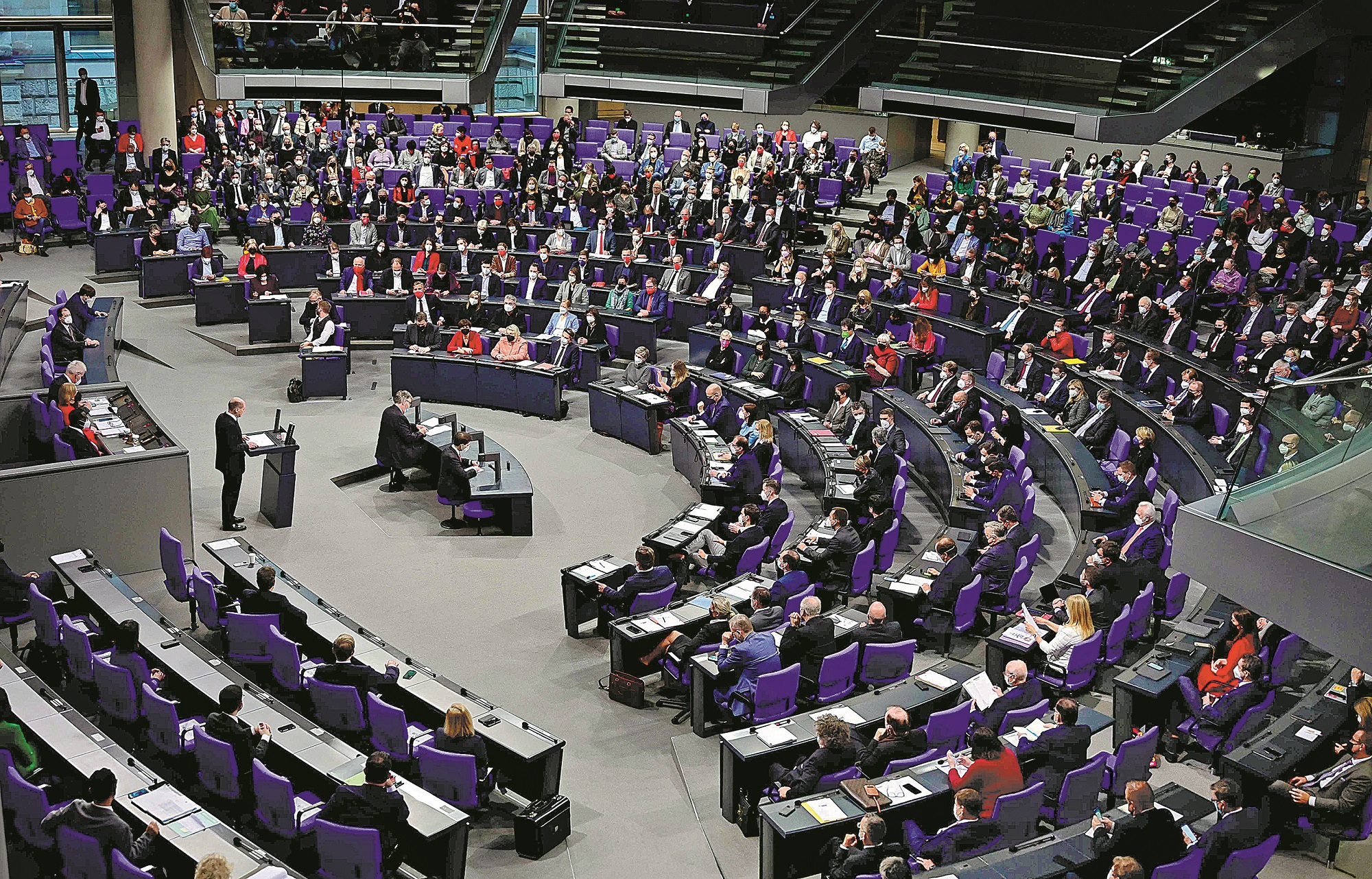German-Sino ties should be pragmatic
By CHEN YINGQUN | CHINA DAILY | Updated: 2021-12-18 12:41

Observers expect a continuation of practical policy in Berlin despite Western cliche
Developing friendly relations and strengthening cooperation will serve the common interests of China and Germany, analysts said, as Germany's new Chancellor Olaf Scholz called for a pragmatic approach toward China.
Scholz gave his inaugural address to the Bundestag, the lower house of parliament, on Wednesday and outlined the government's policy agenda for the next four years, with issues ranging from the COVID-19 pandemic to climate change and foreign policies.
Scholz, 63, settled into office last week as the country's ninth chancellor, having replaced Angela Merkel who had held the position for 16 years. His Social Democratic Party has negotiated an agreement to form a coalition government with the Greens and the Free Democratic Party.
While speaking of China, Scholz said the new government would not close its eyes to "human rights transgressions" in China, but at the same time, views China as an important economic partner. "We must align our China policy with China we find in real terms," he said, calling for a pragmatic approach, as quoted by German news website Deutsche Welle.
Accusing China of so-called human rights abuses "does not change the fact that a country of China's size and history has a place in the international concert of powers", he said.
Scholz added that Germany would therefore like to work with China to tackle challenges "affecting humanity", such as the fight against climate change and the pandemic, as well as in the field of arms control.
Tian Dewen, deputy director of the Institute of European Studies at the Chinese Academy of Social Sciences, said Scholz's attitude is in line with the forecast. He expected no significant changes in China-Germany relations, despite some voices in Germany that advocate a tougher stance toward China due to so-called human rights issues.
"China-Germany economic cooperation has reached quite a high level, and China would remain an important economic partner to Germany, regardless of whoever or which party leads the new government," he said, adding that it is just a cliche for Western politicians to point fingers at China's domestic issues in the name of "human rights".
"Scholz should be a pragmatist, and Germany attaches great importance to economic development. It would certainly be bad for Berlin if Sino-German relations were damaged."
A shrinking economy
Germany's economy will shrink 0.5 percent in the fourth quarter of this year, compared with the third quarter. Its economy will also remain stagnant in the first quarter of next year, according to projections published last week by the Ifo Institute for Economic Research.
He Yun, associate professor in the School of Public Administration at Hunan University in Changsha, said the new chancellor's statement reflects a continuation of Germany's practical policy toward China.
"I do not expect it to change much, partly because Germany depends on China's market and for many imported products," she said.
"What's more, the Free Democratic Party who is also in the cabinet is neoliberal and in favor of free trade. So, it would not endanger a close trade relationship."
China has been Germany's largest trading partner over the past five years, and Germany exports tens of thousands of cars to China each year.
But Germany will probably reduce its dependence on some essential products in China and try to produce them locally. But even that will probably take years to realize it, she said.
Tian said all parties of the coalition government have motives for their cooperation with China. For instance, the Greens focus on issues such as climate change, and China has made commitments to achieve carbon neutrality by 2060 and peak carbon emissions by 2030, so there is huge potential for cooperation.
He also said both China and Germany's economies will have to transform for green development, and cooperation in areas such as renewables will be crucial.
Scholz also stressed in his speech the importance of moving away from fossil fuels and toward greener energy sources, something he said would be done with "fair distribution of cost" to give people the "safety and security" of switching to renewable resources.
























